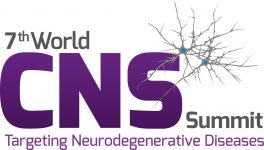
February 19-21 2019
30+ Expert Speakers ♦ 3 Days ♦ 2 Streams ♦ 3 Workshops ♦ 10+ Hours of Networking
Workshop A
Tuesday 19 February
10am-1pm
Accessing the CNS: Evaluating Blood-Brain Barrier Technologies for Treating Neurodegenerative Diseases
Following the successful discovery of a valid therapeutic target for neurodegenerative disease, drug delivery to the CNS remains a significant challenge. In addition to direct injection into the CNS, several approaches have been developed to allow therapeutics to cross the blood-brain barrier (BBB).
Attend this workshop to:
• Understand the anatomy, function and pathology of the BBB in health and CNS diseases
• Evaluate different strategies for crossing the BBB and alternative approaches to deliver biotherapeutics, gene therapy vectors and oligonucleotides to the CNS
• Assess the pros and cons of existing preclinical model systems used to support BBB research
• Discuss the translational challenges and potential pitfalls in developing BBB-crossing drug delivery technologies
• Observe lessons learned from historical and emerging clinical case studies related to BBB translational research
Workshop Leader:
Robert Bell
Associate Research Fellow
Rare Disease Research Unit
Pfizer
Workshop B
Tuesday 19 February
2pm-5pm
Optimizing Precision Medicine for Neurodegenerative Diseases
Precision medicine utilizes biomarkers to deliver optimally targeted and timed interventions tailored to that individual’s molecular drivers of neurodegenerative disease. Neurodegenerative diseases such as Alzheimer’s and Parkinson’s are well-suited models for precision medicine due to the vast degree of individual variability. Precision medicine for these diseases is rapidly evolving due to the advancements in the genetic knowledge base allowing improved phenotypic classification, rapid biomarker development and greater opportunity for modifying treatments.
Attend this workshop to:
• Understand the integrated research platforms providing genetic analysis
• Discover the personal genome analysis
• Explore the genetics-based methods of drug discovery
• Assess the future for personalization of medical care
Workshop Leader:
Daniel Klamer
Vice President, Business Development and
Scientific Strategy
Anavex Life Sciences Corpfize
Workshop C
Tuesday 19 February
10am-1pm
Modelling Alpha-Synucleinopathies in Animals
One of the greatest challenges for neurodegenerative disease drug development is representing the disease effectively in preclinical models. There are many options and approaches to improve the validation of targets, biomarkers of drug effect and target engagement to define effective doses in addition to the ultimate hope of prediction of clinical efficacy. This workshop will explore and discuss diverse views on the use, value and future of rodent and non-human primate models of alpha-synucleinopathies in the development of therapeutics for Parkinson’s disease and multiple system atrophy.
Join your peers at this workshop to:
• Evaluate current methods of preclinical neurodegenerative processes related to the synucleinopathy in Parkinson’s disease and multiple system atrophy
• Discuss the future neurodegenerative disease model approaches for better disease representation to better define target validity and engagement and potential efficacy
• Compare non-human primate and rodent models to determine the most valuable strategies for modelling synucleinopathies.
Introducing the workshop discussion panel:
Workshop D
Tuesday 19 February
2pm-5pm
Exploring Gene Editing for Treating Neurodegenerative Disease
Gene therapy heralds a new era in medicine and in treating neurodegenerative disease. Unlike pharmaceutical products, which mostly target affected pathways or disease symptoms, gene therapeutics can intervene at the genetic DNA or RNA code. They can reverse mutations which cause neurodegenerative diseases, which to this day remain poorly addressed by small molecules.
Join this discussion led workshop to:
• Survey the intervention of pre-mRNA trans-splicing, mediated by the spliceosome
• Evaluate other gene editing strategies that have improved survival, slowed disease progression and improved therapeutic response in animal models or clinical trials
• Discuss neurodegenerative disease biology and genetic influences
• Assess screening and production of gene editing molecules, how they are delivered and evaluated for clinical potential
• Compare and contrast the growing array of gene editing approaches for neurodegenerative disease
Workshop Leaders:
C. Anthony Altar
Founder
NeuroDrug Consulting
Lloyd Mitchell
Chief Exaecutive Officer & Chief Scientific Officer
RetroTherapy




